Over the years, there have been significant advancements in engine complexity, which has prompted oil manufacturers to improve oil quality. One such manufacturer is General Motors (GM) offering Dexos oils to increase engine life and maximize fuel efficiency.
To some extent, these oils have similar traits, but they continue to serve different purposes. For example, Dexos 1 suits only gasoline engines while Dexos 2 works best with diesel engines. In some parts of Europe, Dexos 2 is used in both sets of engines
What is Dexos Oil?
In the automotive world, Dexos oils are those engine oils that must achieve a specific set of prerequisites. Initially, the oil was designed for engines that run on gasoline, but later on, a version for diesel engine oil was introduced into the market.
Disparities Between Dexos 1 vs. Dexos 2
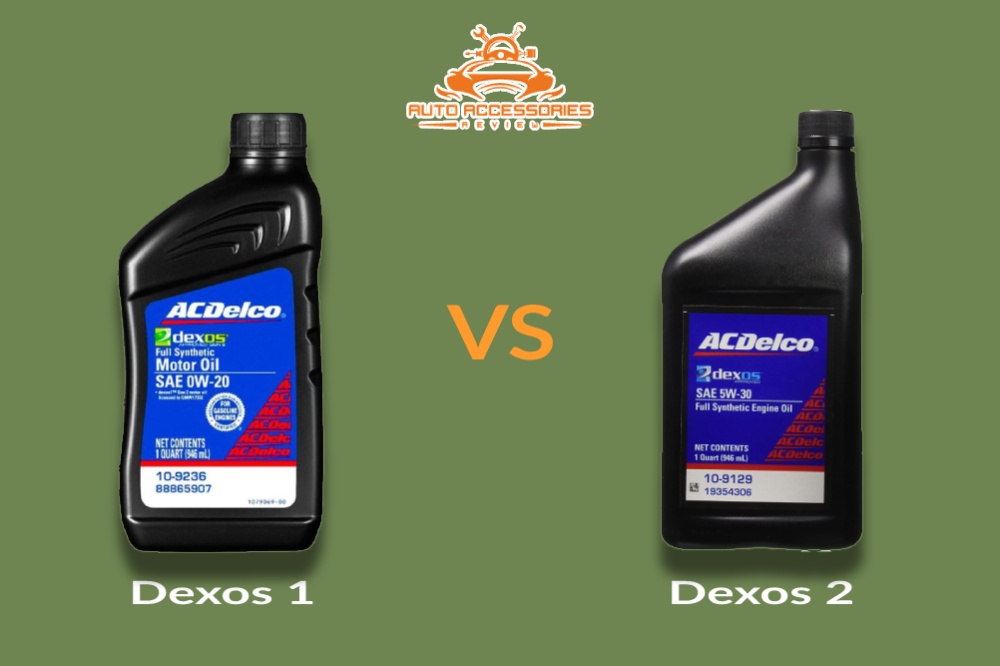
A quick look
| Comparing factors | Dexos 1 | Dexos 2 |
| Targeted engines | gasoline engines | diesel engines |
| Viscosity ratio | High | Low |
| Engine Longevity | Longer | Shorter |
| Additives quality | Superior | Inferior |
| Value for money | High | Low |
| API specification | CK-4 | CJ-4+ |
| Fuel economy | Higher | Lower |
| Temperature suitability | Works better in both high and low temperature | Suitable for low temperature |
| Available grades | Factory fill viscosity grades (0W-20, 5W-20, 5W-30) and service fill (0W-20, 5W-20, 5W-30, and 0W-30) | Factory fill grades are 5W-30 and 0W-40, while service fill grades comprise 0W-30 and 0W-40 |
| 0w20 viscosity grade | Available | Not available |
| Active area | Asia and North America | Commonly used in european region |
| Service classification | ILSAC GF-5 and API SN | API SN and ACEA C2 / A5 / B5 |
| Models suitability | Models manufactured after 2011 | Suitable for models after 2011 (can also be used in some previous models) |
| Replacement with | GM6094M, GM-LL-A-025, and GM4718 | GM-LL-B-025 and GM-LL-A-025 |
| Oil change interval | High (Upto 15000 miles) | Low (Can’t handle oil change interval for a long time) |
| Approved oil list | More than 500 oils | Around 200 oils |
| HTHS value | >2.6cP and >2.9cP | > 3.5cP |
- Viscosity
Simply put, viscosity is a measure of fluidity in any particular oil. For either of these oils to be regarded as good, the viscosity levels should be balanced.
Dexos 1 has become a household name because its viscosity ratio is way better than that of Dexos 2. As a result, Dexos 1 facilitates smooth operation for cars operating in regions with low temperatures, such as North America. Besides, Dexos 1 doesn’t fair badly in areas with high temperatures due to the adequate viscosity level.
The viscosity levels of Dexos 2 oils are most useful during hot weather because they help maintain the oil’s texture.
- Longevity
Dexos oils are fully synthetic, which explains why they are more durable than other oils. Nevertheless, the point of departure between these oils is in the quality of synthetic additives. In this case, Dexos 1 oils have superior quality.
Furthermore, Dexos 1 facilitates the longevity of gasoline engines because it reduces oxidation through the infamous LSPI test. In contrast, Dexos 2 oils create more sludge, mainly when there are delays in oil change intervals.
- Value for Money
The strengths of either of these oils are the best indicator of their value for money. However, in terms of overall performance, Dexos 1 is way better off than Dexos 2.
The main reason Dexos 1 oils are a better value for money is that they come with more advanced additives that are flexible with any kind of model. So, Dexos 1 will always take precedence over Dexos 2, especially in areas where gasoline engines are more popular.
- The specification of API
Dexos 1 was introduced in the market way back in 2004, and it was designed to lubricate the fuel system of engines that are run by gasoline only. When this oil was available in the market, it was operating under the API specification CK-4.
Introduced in 2016, Dexos 2 has the same fuel system lubrication function as Dexos 1, but it is designed to serve diesel and gasoline engines. Besides, Dexos 2 operates under the API specification CJ-4+
- Fuel economy
The primary essence of using Dexos 1 and Dexos 2 oils is improved fuel economy. However, the upgraded classification of Dexos 1 makes it a lot better than Dexos 2. While both sets of oils undergo fuel economy tests, the criteria used for Dexos are much more meticulous than that of Dexos 2. As such, Dexos 1 is the preferred option for better fuel economy
- Temperature range suitability
The viscosity of Dexos 1 makes it suitable for high-temperature regions. After all, the demand for Dexos 1 has hit the roof due to its low HTHS (high-temperature high shear) viscosity. With low HTHS, Dexos 1 helps to minimize engine strain. Dexos 1 is the most preferable oil because it can be used in high and low temperature regions.
Conversely, Dexos 2 is suitable for regions with low temperature. Even the lowest temperature cannot deter Dexos 2 from ensuring an efficient flow pump. Regardless of how low temperature is, this oil ensures utmost safety.
- Grades available
Since these oils are designed to withstand extreme temperatures, it, therefore, means that they have a viscosity grade level. In any case, both oils have numerous viscosity grades under their name.
For Dexos 1, this oil has factory fill (0W-20, 5W-20, 5W-30) and service fill viscosity grades (0W-20, 5W-20, 5W-30, and 0W-30). On the other hand, Dexos 2 has fewer grades in both categories. Factory fill grades are 5W-30 and 0W-40, while service fill grades comprise OW-30 and 0W-40.
Given that 5W-30 and 0W-20 are the most famous grades in the industry, then Dexos 1 is one step ahead of Dexos 2 because the latter doesn’t have 0W-20 within its ranks.
- Suitable models
None of these oils is the preferred option with regards to suitable models. However, this has not always been the case. Both Dexos 1 and Dexos 2 are pure synthetic oils, and their performance levels have been tested with newer and older engines. While both can be used on all models of engines, Dexos 2 is the mostly preferred because it comes with upgraded additives.
- Suitable engines
As alluded hereinabove, Dexos 2 is a multipurpose oil used in both sets of engines (diesel and gasoline). However, the use of Dexos 2 in diesel and gasoline engines is only applicable in European countries. After all, Europe is known for its high usage of light-duty diesel engines.
Dexos 1 is often used in Asia and North America because it works well with gasoline engines. In Europe, most gasoline engines use Dexos 2 oils. Since gasoline engines are not quite popular in Europe, GM opted to limit the supply of Dexos 1.
Is it important to use Dexos oil?
Yes, it is. Failure to use Dexos oil might impact your vehicle’s overall performance, especially with the continued use of the non-synthetic blend.
FAQs
1. What happens if I avoid using Dexos oil?
Ans. While you likely won’t be confronted with any mechanical issue, you should count yourself lucky if you do not witness engine detriment or minimized mileage thereafter.
2. What is the actual cost of changing Dexos oil?
Ans. Unlike conventional oil, Dexos oil is a bit costly, so you’re likely to incur an extra cost. If you’re planning to change your car’s oil, it will cost you something in the range of $60 to $100.
But the additional cost will prove to be good value for money because Dexos oil will improve your car’s engine performance in every possible aspect.
3. What brand of oil is Dexos?
Ans. Some of the most reputable brand names associated with the manufacture of Dexos 1 and Dexos 2 oils include General Motors, Vesco, Shell, Castrol, ExxonMobil, and Amalie. These companies have been given the go-ahead to produce the oil because they have fulfilled the industry-determined standards.


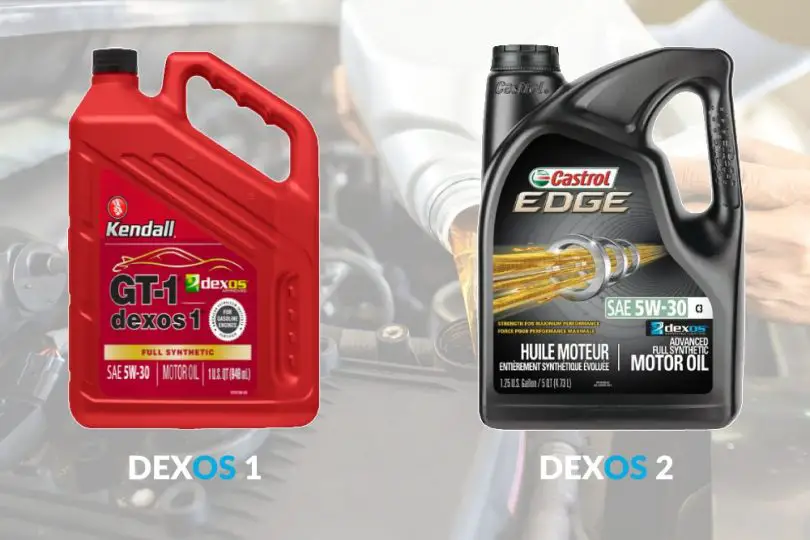
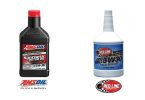


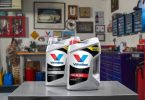
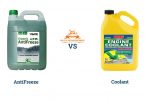


Leave a Comment